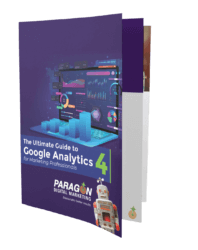Why Meta Descriptions Matter
It’s a good practice to write a brief meta description for each page of your website. This lets users know exactly what to expect before they click. Quality search engine snippets are yet another key element to Search Engine Optimization, and should not be overlooked.
What is a Meta Description?
A meta description is the sentence or two that describes what’s on a web page or article. Google refers to these as snippets. It’s that blurb under the URL that helps you decide whether or not to click on or skip a specific link. When you perform a search, a search engine will pull a meta description for each and every result; even when websites don’t provide one. According to Google, “they are like a sales pitch that convince the user that the page is exactly what they’re looking for.” These descriptions can be easily overlooked since they’re usually hidden as an HTML tag in the back-end of a site and look something like this:
<head> <meta name="description" content="a brief description of your page used to earn clicks."/> </head>
Why Meta Descriptions Matter
While meta descriptions are no longer a direct ranking factor for search engines, clicks certainly are. Meta descriptions will help to convince people that your website is exactly what they were searching for. This leads to more clicks, which indirectly leads to a higher SERP ranking. Google positions popular sites with the best click through rates highest on search queries. Meta descriptions may not influence bots, but they’re important to the people searching for your page. As Bill Slawski put it:
https://twitter.com/bill_slawski/status/895726940560031744
While it may take some time to write descriptions for each of your pages, it’s well worth the work. We recommend prioritizing the most important pages such as your home page. Depending on which content management system you use, how to add or edit your meta descriptions will vary. Luckily, with WordPress, you can use a Search Engine Optimization plug-in that streamlines this process such as Yoast. Worst case scenario, you’ll need to manually add a meta description in the <head> section of your site’s HTML.
Snippets and meta descriptions aren’t just useful for search engines. Social media platforms use them as well. Sites like Facebook will pull meta descriptions into links people share. The meta description will automatically appear and your pages will practically sell themselves!
Frequent Mistakes
One of the biggest mistakes when it comes to meta descriptions is ignoring them. When a page lacks a meta description, Google will generate one for you. Google does this by attempting to pull the most relevant excerpt of text from your page. While Google’s algorithm may get it right from time to time, we know it’s best not to chance it. The generated meta description could potentially hurt your site’s ability to earn clicks by misrepresenting your pages’ content.
Even worse than ignoring meta descriptions, is duplicating them. Each page of a website is unique, and its description should follow suit. In fact, repeating a meta description for multiple pages is said to be worse than having none at all. Duplication is never good for SEO.
Long winded descriptions run the risk of being truncated and ending in an ellipses (…) in results. Unfortunately, there’s no one specific character limit; the length of meta descriptions will vary depending on each devices’ screen. 130-160 characters is a good rule of thumb for meta descriptions, but don’t forget to count for spaces!
 On the other end of the mistake spectrum, is writing misleading descriptions. Keep your descriptions accurate with a healthy number of keywords. No one likes a spammy snippet. While keywords won’t directly improve rankings, they will appear bold in the meta description when used in search queries. This may help to catch a users eye and earn their click.
On the other end of the mistake spectrum, is writing misleading descriptions. Keep your descriptions accurate with a healthy number of keywords. No one likes a spammy snippet. While keywords won’t directly improve rankings, they will appear bold in the meta description when used in search queries. This may help to catch a users eye and earn their click.
More obscure mistakes include using quotation marks. Your description will cut off at the first quotation mark. This mistake stems from HTML coding and unless you’re familiar with code, it’s best to avoid them.
Make Your Meta Descriptions Matter
Writing meta descriptions or snippets is very similar to writing ads. Keep it brief, clear and to the point. Other best practices to follow while crafting your snippets:
- Use an active, descriptive, persuasive voice

- Don’t describe your features, sell your benefits
- Include a call to action
- Make sure your description matches the content it’s advertising
- Add relevant keywords
Need help making your meta descriptions matter? Contact us today!













